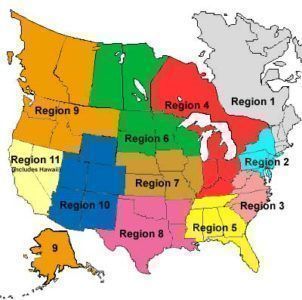BIOTECHNOLOGY: THE FUTURE IS’ TODAY
BIOTECHNOLOGIES: the future è today
Genetic and cancer disease treatment and prevention, low-cost drugs, environmentally friendly industrial processes, biofuels. These are some of the very important milestones that biotechnology has achieved in little moreù By 25 years. But what exactly is meant by the term biotechnology? By Biotechnology we refer to the’integration of natural sciences, organisms, cells, their parts or molecular analogues, into industrial processes for the production of goods and services. Essentially, it consists of deciphering and making practical use of biological knowledge.
Modern biotechnology makes use of the’Use of recombinant DNA technology that gives usà the facultyà to genetically improve organisms through which we can produce molecules of pharmaceutical interest, such as the’insulin, an indispensable protein for people with diabetes, treat hitherto incurable metabolic dysfunctions or improve the nutritional characteristics of food, thus preventingì, diseases such as l’ avitaminosis that afflicts millions of people especially in the third world and promote the safety and’hygiene of agri-food products. It is not necessary toò set aside from the mind the potential ofà that these technologies have to solve major environmental problems, applying them for the control and management of the’greenhouse gas pollution and the remediation of the biosphere from toxic waste.
Biotechnology and people: how biotechnology is perceived by people? According to a study conducted by the’European Union the positive contribution of new technologies on a biological basis è major for biotech sectors involving the technically called red biotechnology and white biotechnology i.eè those branches dealing with medical-pharmaceutical and industrial development, respectively, with a utilità of the perceived greater product than green biotechnology, which focuses its interest on plant organisms.
 Biotechnology and institutions: although biotechnology has increased growth rates by 200% in the disciplines in which it operates as well specified by the’ OECD and well reiterated by the’ National Association of Italian Biotechnologists, heard in the chamber last December, c’è still a very serious delay on the part of the institutions on the professional recognition of the biotechnologist that in addition to legislative implications brings repercussions on an alreadyà missing biotech job placement facility.
Biotechnology and institutions: although biotechnology has increased growth rates by 200% in the disciplines in which it operates as well specified by the’ OECD and well reiterated by the’ National Association of Italian Biotechnologists, heard in the chamber last December, c’è still a very serious delay on the part of the institutions on the professional recognition of the biotechnologist that in addition to legislative implications brings repercussions on an alreadyà missing biotech job placement facility.
We only have to wish for a better future for theè biotechnology can still moreù assert itself and continue to make a positive contribution on our lives as it has so far proven so well to do.

